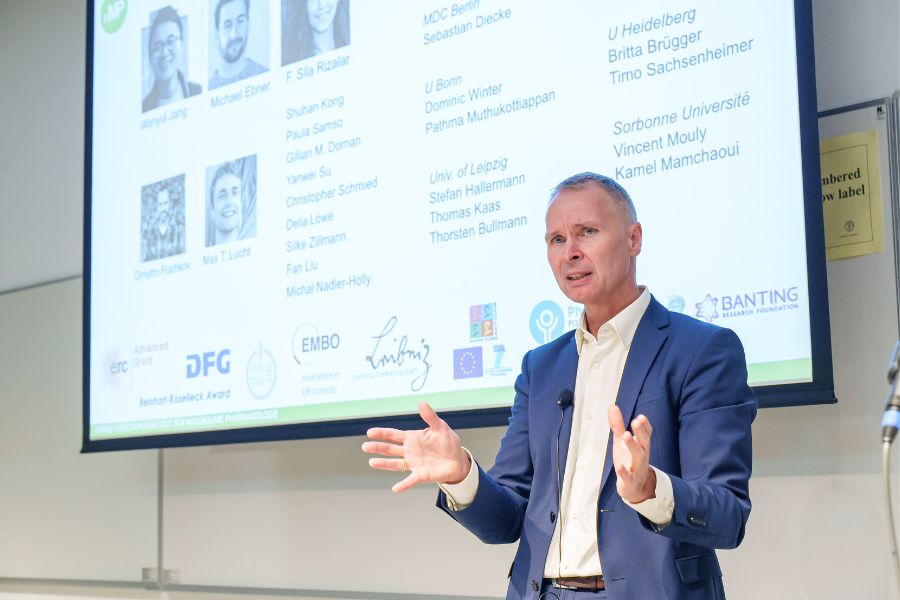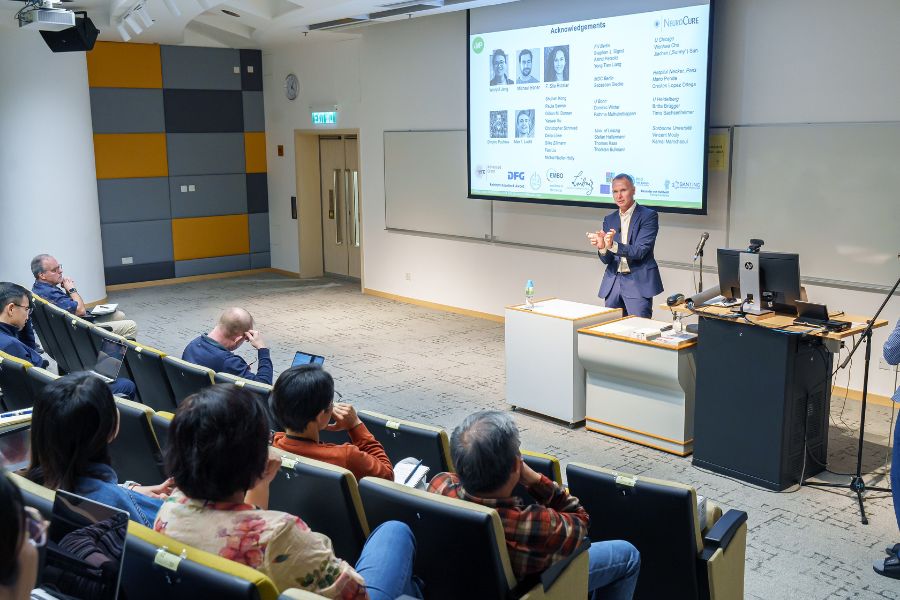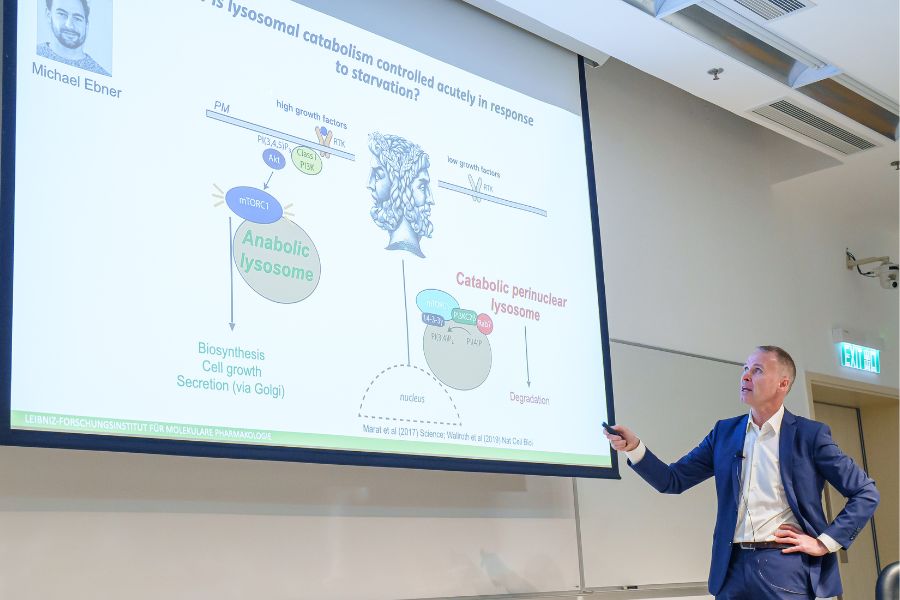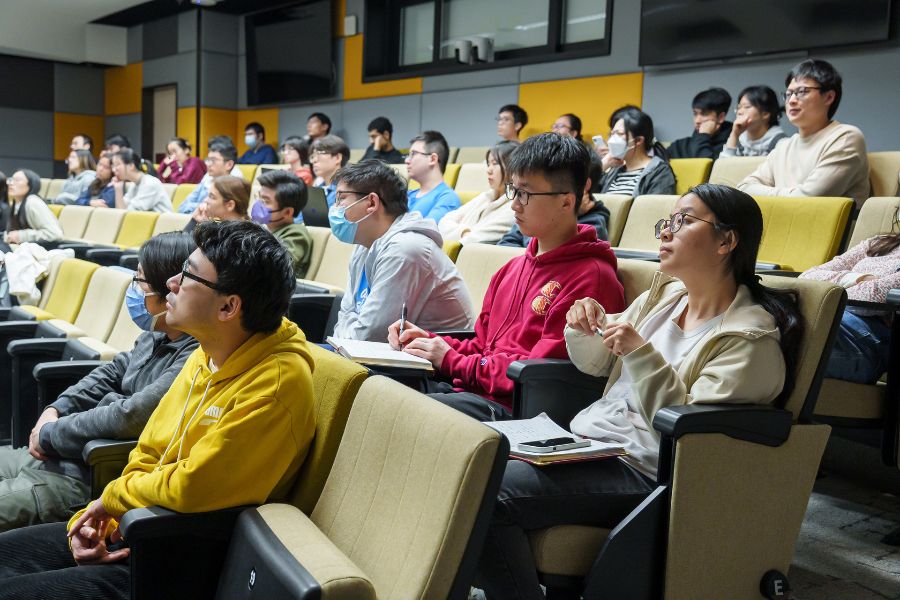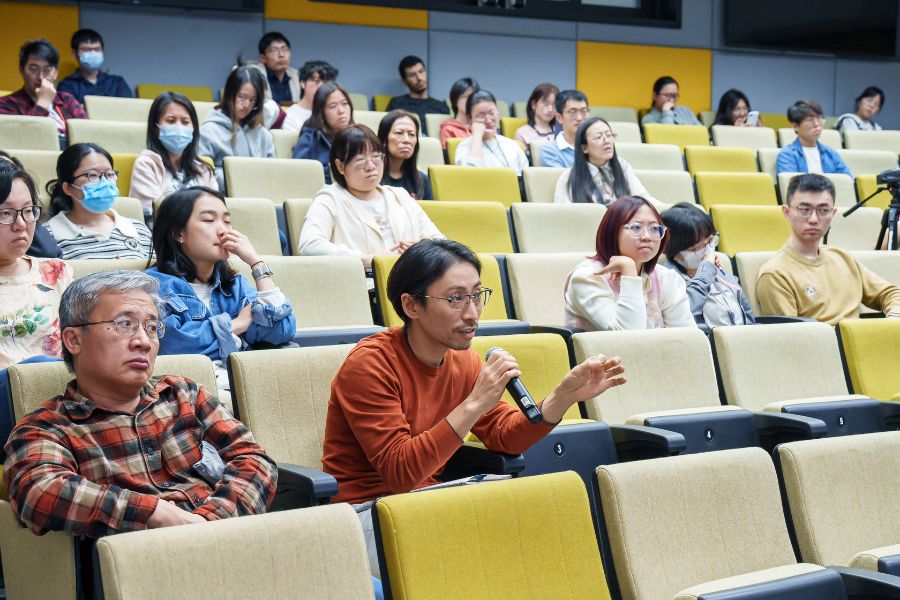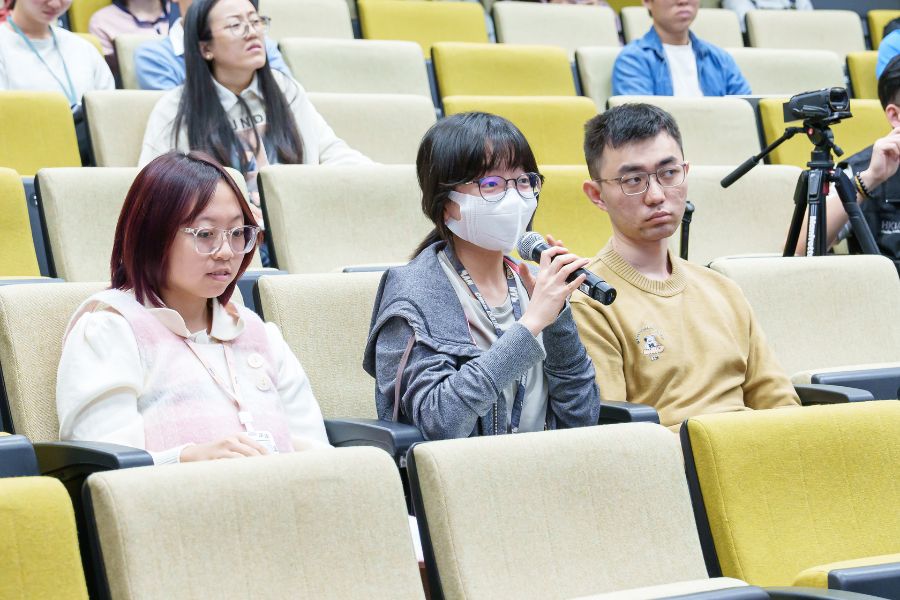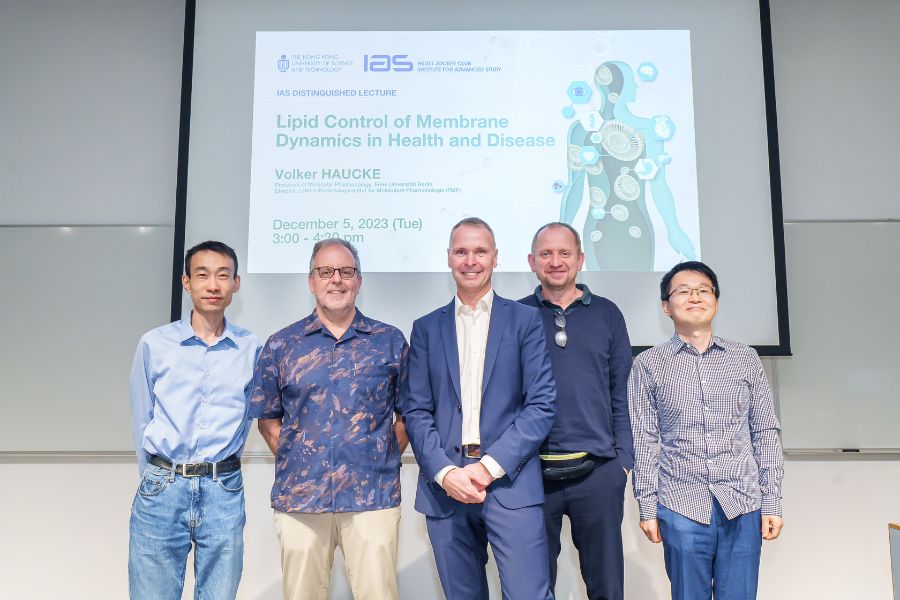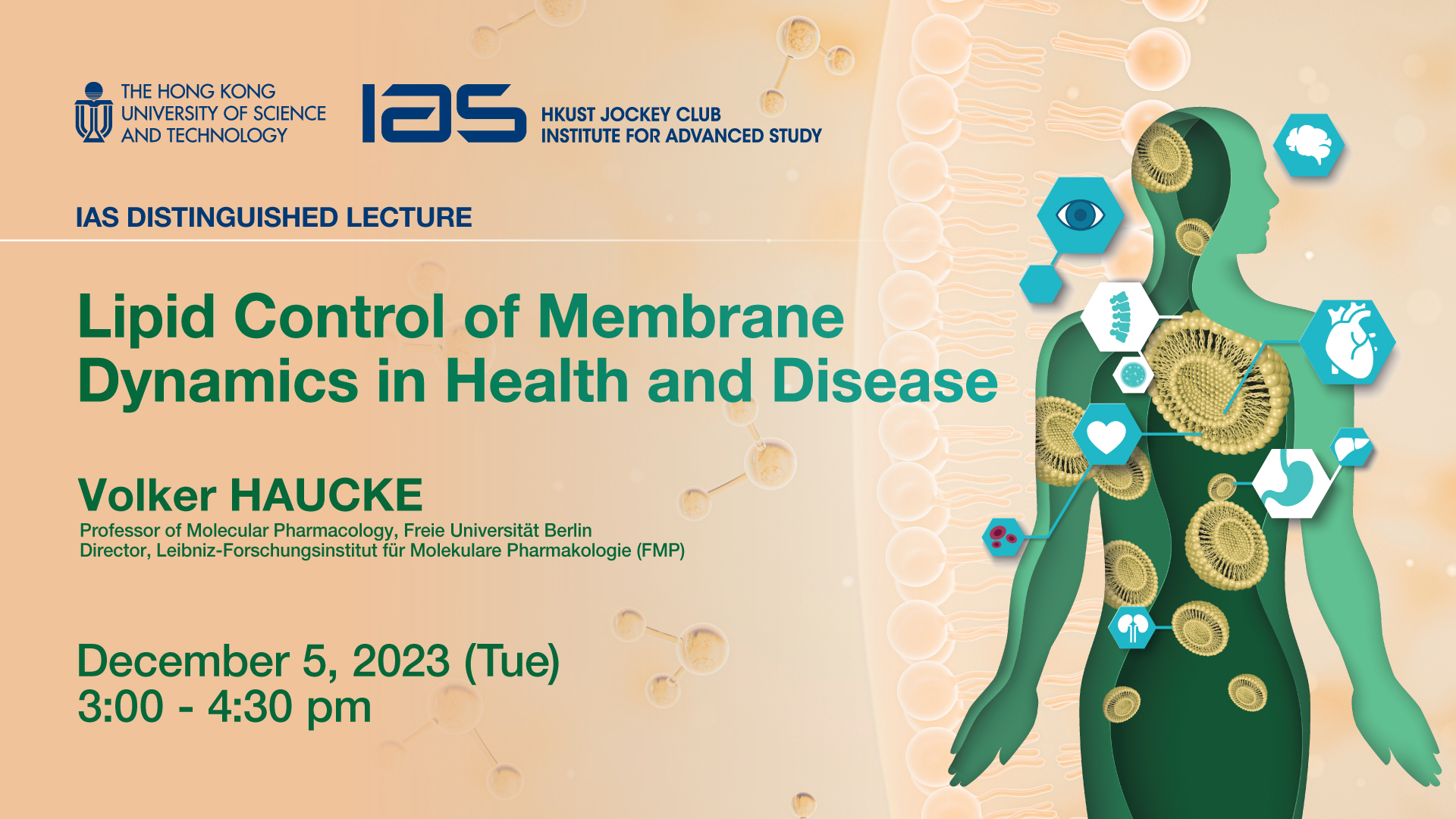Lipid Control of Membrane Dynamics in Health and Disease
Abstract
Phosphoinositide (PI) lipids exert crucial functions in cell physiology, ranging from nutrient and growth signaling to neurotransmission and intracellular membrane dynamics.
In this talk, the speaker will present his group’s recent insights into the function of specific PI lipids in the formation of synapses in stem cell-derived human neurons (Rizalar et al., Science 2023) and in the nutrient-regulated control of lysosome function in health and disease (Ebner et al., Cell 2023).
Neurons relay information via specialized presynaptic compartments for neurotransmission. Unlike conventional organelles, the specialized apparatus characterizing the neuronal presynapse must form de novo. In the lecture, the speaker will first address the unsolved question - how the components for presynaptic neurotransmission are transported and assembled into a functional compartment for neurotransmission. Specifically, he will focus on their recent findings showing that the rare late endosomal signaling lipid phosphatidylinositol 3,5-bisphosphate [PI(3,5)P2] directs the axonal co-transport of synaptic vesicle (SV) and active zone proteins in precursor vesicles (PVs) in human neurons. PVs are distinct from conventional secretory organelles, endosomes, and degradative lysosomes and are transported by coincident detection of PI(3,5)P2 and active ARL8 via kinesin KIF1A to the presynaptic compartment. Their findings identify a crucial signaling lipid-dependent mechanism mediating the delivery of SV and active zone proteins to developing synapses.
In the second part of the talk, the speaker will discuss how the antagonistic activities of lysosomes in mediating anabolic growth signaling and the catabolic turnover of macromolecules (e.g. to counteract neurodegeneration) are controlled by signaling membrane lipids. Their recent studies show that lysosome morphology and function are reversibly controlled by a nutrient-regulated signaling lipid switch that triggers the conversion between peripheral motile signaling-active and static mTORC1-inactive degradative lysosomes clustered at the cell center. Starvation-triggered relocalization of phosphatidylinositol 4-phosphate [PI(4)P] metabolizing enzymes reshapes the lysosomal surface proteome to facilitate lysosomal proteolysis and to repress mTORC1-signaling. Concomitantly, lysosomal phosphatidylinositol 3-phosphate [PI(3)P], which marks motile signaling-active lysosomes in the cell periphery, is erased. Interference with this PI(3)P/ PI(4)P lipid switch module impairs the adaptive response of cells to altering nutrient supply. Their data unravel a key function for lysosomal phosphoinositide metabolism in rewiring organellar membrane dynamics in response to cellular nutrient status with important implications for numerous diseases characterized by lysosome dysfunction including neurodegeneration.
About the Speaker
Prof. Volker Haucke received his MSc in Biochemistry from the Freie Universität Berlin in 1994 and his PhD in Biochemistry from the University of Basel in 1997. He then conducted research at Yale University, the University of Göttingen and Freie Universität Berlin. Since 2012, he has been the Professor of Molecular Pharmacology at the Freie Universität Berlin and the Director at the Leibniz-Forschungsinstitut für Molekulare Pharmakologie (FMP). He is also the Member & Principal Investigator of the NeuroCure Cluster of Excellence in Germany.
Prof. Haucke’s research aims to understand cellular communication in health and disease at the level of membrane-enclosed compartments that dynamically exchange materials between them. The main focus is on the analysis of the endocytic and endolysosomal systems in genome-engineered cells and in nerve tissue. He has served on the editorial board of Cell Stress, Biology Cell and EMBO Reports.
Prof. Haucke is the recipient of the 2016 Reinhart-Koselleck-Award of the Deutsche Forschungsgemeinschaft (DFG), 2017 Avanti Award in Lipids of the American Society for Biochemistry & Molecular Biology, and the 2020 Feldberg Prize for Research in Physiology and Pharmacology of the Feldberg Foundation. He is elected to the Member of the Academia Europaea, the Berlin-Brandenburg Academy of Sciences and the German National Academy of Sciences Leopoldina. Since 2023, he has been the President of the German Society for Biochemistry and Molecular Biology.
For Attendees' Attention
Seating is on a first come, first served basis.

